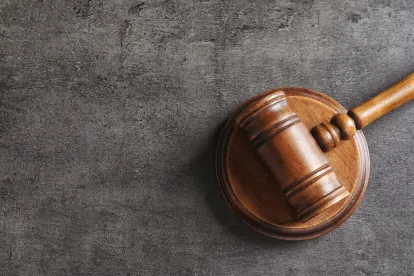I was reminiscing the other day about how I missed my favorite, snarky website Gawker when I saw that the District of New Jersey has proposed an amendment to the local rules (Local Rule 7.1.1) that would require disclosure of third-party litigation funding. Under the proposed new rule, all parties would be required to file statements setting forth information about any non-party person or entity that is “providing funding for some or all of the attorneys’ fees and expenses for the litigation of a non-recourse basis” in exchange for either “a contingent financial interest based upon” the litigation’s results or a “non-monetary result that is not in the nature of a personal or bank loan, or insurance.”
The statement would need to be filed within 30 days of the filing of an initial pleading or removal and would need to include: (i) the identity of the funder(s), including name, address, and place of formation (if a legal entity); (2) whether the funder’s approval is “necessary for litigation decisions or settlement decisions,” and if so, “the nature of the terms and conditions relating to that approval”; and (3) a description of the nature of the financial interest involved. The proposed new rule further provides that a party may seek discovery “of the terms of any such agreement upon a showing of good cause that the non-party has authority to make material litigation decisions or settlement decisions, the interests of the parties or the class (if applicable) are not being promoted or protected, or conflicts of interest exist, or such other disclosure is necessary to any issue in the case. If adopted, Local Civil Rule 7.1.1 would take effect immediately “and apply to all pending cases upon its effective date, with the filing mandated in Paragraph 1 to be made within 45 days of the effective date of this Rule.”
The proposed rule is likely in response to recent decisions, most notably Judge Schneider’s in In re Valsartan NDMA Contamination Products Liability Litig., addressing whether litigation funding information is discoverable. In re Valsartan is a multi-district litigation concerning the FDA’s voluntary recalls of the generic prescription medication Valsartan. The defendants made a motion to compel the Plaintiffs to disclose their “litigation funding.” Plaintiffs objected on the grounds that the information was irrelevant to their claims and defenses and that the defendants had no legitimate need for the requested information. Judge Schneider recognized that courts were split on the issue, but ultimately denied the defendants’ motion and held that the plaintiffs did not have to disclose whether their claims were being funded by a third party. Despite their victory in Court, if adopted, Local Rule 7.1.1 will require plaintiffs to disclose this information.
Which brings me back to Gawker. Gawker Media might still be around today if the Sixth Judicial Circuit in Pinellas County, Florida had a rule like the District of New Jersey’s proposed Local Rule 7.1.1. Bollea v. Gawker is probably one of the most consequential (and strangest) lawsuits in the history of modern American media. In 2016, Hulk Hogan (né Terry Bollea), the professional wrestler, won a nine-figure jury verdict that ultimately bankrupted Gawker Media. The lawsuit concerned the publication of a video of Hogan having consensual sex with his best friend’s wife, which the same friend secretly recorded.
Behind the scenes, an even more bizarre story was playing out. Peter Thiel, the Paypal co-founder, was bankrolling Hogan’s lawsuit in order to exact revenge on Gawker for publicly outing the notoriously private billionaire as gay. In December 2007, Gawker Media’s tech blog Valleywag published a post under the headline “Peter Thiel is totally gay, people.” Thiel waited several years for the opportunity to take Gawker down before landing on Hogan’s lawsuit as the means to exact his revenge.
In 2012, the Hulk Hogan sex tapes were leaked to Gawker which published the videos under the headline: “Even for a Minute, Watching Hulk Hogan Have Sex in a Canopy Bed is Not Safe For Work but Watch it Anyway.” Hogan was mortified and decided to sue Gawker for invasion of privacy. News of Hogan’s intentions made it to Thiel’s legal team who reached out to Hogan’s lawyers and told them that Thiel was willing to bankroll the suit. In October 2012, Hogan filed a lawsuit against Gawker Media seeking $100 million in damages for invasion of privacy, infliction of emotional distress and violation of the Florida Security and Communications Act. The jury ultimately awarded Hogan $140 million in damages leading to Gawker Media filing for bankruptcy.
Had Gawker’s legal team been aware that Thiel was bankrolling the lawsuit, their strategy in the litigation probably would have been very different. If you are fighting Hogan alone you file motions and drag it out to be as painful as possible for Hogan, in the hopes that he’ll settle. Hogan wouldn’t settle—because Gawker wasn’t fighting Hogan—they were fighting a billionaire—with unlimited funds to litigate. Had Gawker known that Thiel was funding the lawsuit they could have cast aspersions on him and made the case to the jury that they were being hounded by a billionaire seeking revenge for a petty grudge. All of a sudden what initially looks like a pure invasion of privacy case is something much different—and raises serious questions about privacy and a free press and whether a billionaire should be able to shut down a media outlet out of pure spite. That’s an entirely different kettle of fish—and an argument the jury never got to hear.



 />i
/>i

